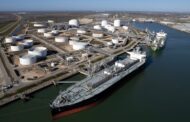The ongoing conflict between Israel and Hamas has seen oil prices jump as investors consider the risk of wider geopolitical issues across the Middle East. These rising prices will benefit a number of stocks, according to Paulina Strzelinska, quant strategist at Bank of America. “With rising oil and natural gas prices we screen for the top 25 [European] stocks that tend to outperform when these prices increase by at least one standard deviation above the one-year average,” she wrote in an Oct. 11 note. Brent crude prices are up over 7% since Hamas launched an unprecedented attack on Israel on Oct. 7, leading Israel to declare war on the militant group. Stocks to watch amid rising oil prices The bank’s screen captures stocks under the Europe Stoxx 600 with a market capitalization of at least 5 billion euros ($5.26 billion). Among Bank of America’s list of “top companies” is Swedish mining, metals and smelting player Boliden , Chilean mining group Antofagasta and Spanish energy player Repsol . Other companies that made the list include French energy giant TotalEnergies , British luxury car and aero-engine manufacturer Rolls-Royce and Dutch insurer Aegon . Outperformers when natural gas prices rise In a separate screen, Bank of America revealed its list of companies that tend to outperform when natural gas prices rise. Companies that showed up on the list include Portuguese energy player Galp Energia , Dutch professional software solutions provider Wolters Kluwer and the U.K.’s London Stock Exchange . Three stocks appeared on both the oil and gas screens: Norwegian energy c ompany Equinor as well as British mining houses Rio Tinto and Anglo American . Equinor is listed on both the Oslo Stock Exchange and Nasdaq, while Rio Tinto is listed on the London Stock Exchange and Australian Securities Exchange. Meanwhile Anglo American has a dual listing on the London Stock Exchange and Johannesburg Stock Exchange. Anglo American made headlines earlier this month after announcing it was cutting some head office jobs across its global operations. The company’s CEO Duncan Wanbald subsequently told Reuters that the move follows “challenging times” as its earnings had taken a hit from weak metal prices. — CNBC’s Michael Bloom and Sam Meredith contributed to this report.
As oil prices rise, these global stocks are set to outperform: Bank of America
















